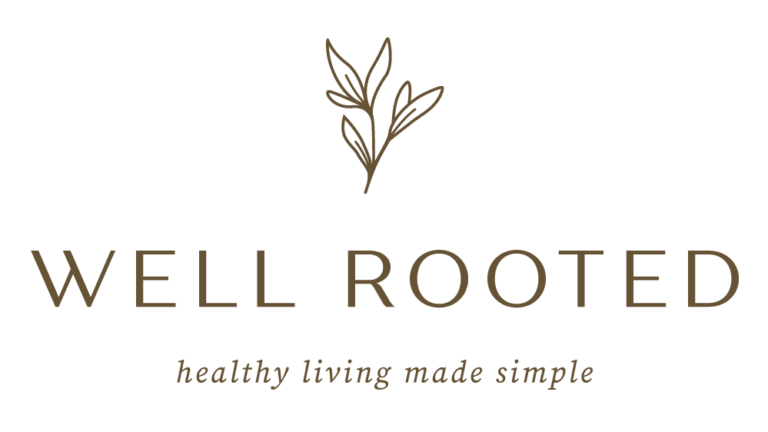5 Self-Care Essentials For Chronic Illness
It hard to believe that it has been one year since the health crash that ultimately led to my autoimmune diagnosis. It both feels like yesterday, and like years ago. Because so much can change in 12 months. This past year has been a challenging one to say the least, but also filled with small and large victories.
This time of year I often look back and reflect on the previous months. I consider the good and the bad, and how I, and we, have grown. Now that I am more mindful, I realize there is much to be thankful for. Because we cannot value the positive without the negative.
Which is why I want to pay this knowledge forward. In the following post I will share my self-pcare essentials, plus tips for managing stressful situations. These resources have helped me throughout my journey and are leading me on a path of healing. I hope that may be able to help you, or someone you love, as well. Cheers to our health!

5 SELF CARE ESSENTIALS FOR CHRONIC ILLNESS
Learning how to deal with stress and implementing a self-care routine is important to manage a healthy lifestyle. But it is paramount to managing chronic illness. These tools are what I have found to be the most important in maintaining my self-care routine.
Everyone Is Unique
Although I wish there was a magic formula we could follow for a quick recovery, things aren’t that simple. We are all such unique creatures, what works for one may not work for another.
Your personal journey must be specific to you. This may mean experimenting and adjusting your healing plan often. And that is totally okay. We are all just doing the best that we can, and using what knowledge and resources we have.
Thankfully there are some general healthy living tips that help many of us. The healing principles, if you will. I have outlined some key tips below, but as always, keep in mind what works for you.
Schedule Personal Time
We lead intensely busy lives. And for some reason our culture seems to reward this. With such a heavy schedule to manage, making time for ourselves is put on the back burner. When we constantly put other things and people before us, we lose the ability to care for ourselves.
Just like we fill the rest of our schedule with appointments, we can and should block time for our self-care. Here are some simple ways I have found to make extra time for myself.
- Take a wellness break over lunch. Get out and go for a walk, meet a friend, or do a quick meditation during your break.
- Cut out 30 minutes of TV at night. Instead take a bath, read a book, color, or do any other activity that relaxes you.
- Rehash your morning routine. Think about a part of your morning routine that you can cut out, such as watching the news. Replace that time with a gentler way to wake up, like journaling, meditating, or enjoying a real breakfast with the family. How you start your day can really set the tone for what’s to come.
- Establish a bedtime routine. Having a bedtime routine is just as important as how you start your day. Make sure part of this routine includes down time for yourself. A warm bath, stretching, reading (not electronic), and talking with your loved ones are all great relaxation techniques to set you up for a good night’s rest.
- Swap commitments for quiet time. Many of us are guilty of overcommitting to work, social, and kid activities. Instead of squeezing in one more thing, block out an entire evening, or even reschedule plans. It feels difficult at first, but gets easier with time. Anything that adds stress will only make things worse you.
QUALITY REST IS ESSENTIAL TO THE HEALING PROCESS. LEARN HOW TO PRIORITIZE SLEEP FOR GOOD HEALTH.
KNOW YOUR LIMITS
There are many commonalities among those with chronic illness. Do any of these sound familiar?
You are willing to take care of everyone but yourself, you have a hard time saying no, are fiercely Type A, and/or you don’t know how to slow down. Especially at first, or if/when you slip back into old habits (I do this ALL the time), you may not even recognize these self-destructive actions.
Everyone’s limits are different, but it is important to identify yours. Here are a few tricks I use to help recognize when I am close to, or have already, reached my limits.
- You notice a change in your mood. This could be irritability, lethargy, weepiness, depression, anxiety, or any other major shift in mood or behavior. This points to hormone dysfunction and is a sign your body is asking for help.
- You start skipping meals or cutting back on sleep. Keeping up with healthy eating and your usual sleep cycle allows your system to heal and function properly. You may already know and practice this regularly. But when you begin sacrificing essentials in place of more commitments, an alarm bell is ringing internally.
- Tired doesn’t begin to describe how you feel. Fatigue is common with chronic illness, but if it hits a new crescendo, or comes back after being absent, you know something is amiss.
- Everything seems to stress you out. This is a major red flag, and usually means you are already well past your limit. Scale back immediately by rescheduling commitments, cut out all unnecessary to-do’s, and practice as much self-care as possible.
- Ask for help. No, this does not mean you are admitting defeat. We all need help, especially those of us with chronic illness. Talk with your loved ones and prepare them for intervention during stressful times. They love you and want to help, promise.
STRESS IS EITHER THE CAUSE OF OR A MAJOR CONTRIBUTING FACTOR OF NEARLY EVERY CHRONIC ILLNESS. LEARN HOW TO IDENTIFY AND MANAGE STRESS TO MAINTAIN YOUR HEALTHY LIFESTYLE.

CONSIDER EMOTIONAL HEALING
Depending on your specific chronic illness, you may primarily have physical symptoms. These are obvious and can easily become the main focus. However, many of us also suffer from emotional distress as well. Whether we realize it or not.
Further, unaddressed emotional distress can also manifest physically. I know, it seems a bit crazy. Truthfully, our emotional health plays into our physical health! Stress is a great example. It begins as a mental threat but then effects our hormones, digestion, and inflammation response to name a few.
It wasn’t until I incorporated emotional healing that I really started to see improvement. Focusing on the physical only got me so far.
- Always be aware. Awareness is the act of being present, and tuning into your mind and body. Paying attention to cues and changes in thoughts and behavior can be really helpful. For instance, you become agitated and nervous before a social situation. Asking yourself why you feel this way may uncover fears or insecurities you can then address.
- Lean into difficult feelings. This is a tough one, as our natural reaction is to run away from difficult situations. Yet, when we don’t address feelings, they just fester and build over time. Instead, try letting things in little by little. It may feel overwhelming at first, but you can start small by setting parameters. If you feel a wave of sadness, allow yourself to ride the wave for a few minutes. Sometimes just recognizing the feeling alone will be enough.
- Let go of damaging habits. We all have bad habits, and some that hinder our healing. Work to identify those behaviors and actions so you can begin to correct them. For example, I often assume I can handle more than I am able. But now that I recognize this, I think through my decisions carefully. This prevents me from facing burnout or unnecessary stress.
- Find ways to calm your mind. Surrounded by technology and instant gratification wherever we turn, it is no wonder many of us struggle emotionally. Add this to our busy lifestyle and are minds are constantly keyed up. Just like our physical self needs rest, so do our minds. Many of the suggestions noted previously are great places to start. I also enjoy a day away from social media, meditation, keeping up with a gratitude journal, and spending quality time with friends and family.
FIND BALANCE
Last and certainly not least, it is incredibly important to find balance. Life is a delicate dance, and life with chronic illness is no exception.
It is really easy to become obsessive about our healing. Whether this be about food, which is how I developed disordered eating, or even about trying all the latest alternative treatments.
Managing a chronic illness is no walk in the park, as it takes constant attention and care. However, we also need to actually live, and enjoy the time we have on earth.
As much as you dedicate time and energy to your healing, equally dedicate efforts to finding joy. Bring yourself happiness every day by doing things you enjoy and being around those you love. This will allow you to avoid letting the darkness take over.
Have faith in your life, believe in love, and support your faith (or whatever you believe in). These simple actions truly go a long way.










